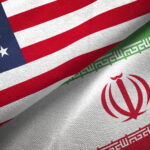“We aren’t going to go back to a cartel … That time has passed” – U.A.E. Minister Al Mazrouei
Just over a year after deciding to change its focus to defending market share rather than oil prices, OPEC members left their semi-annual meeting in Vienna on December 4 grim-faced, according to reports. After out-producing its self-imposed ceiling for 18 months, according to data compiled by Bloomberg, OPEC decided to remove its production quota entirely.
“Effectively, it’s ceilingless,” said Iranian Oil Minister Bijan Zanganeh. “Everyone does whatever they want.” Ahead of the meeting, Zanganeh said Iran would not accept any production curbs until it restores about 1 MMBOPD of output after the removal of sanctions over the country’s nuclear program.
OPEC was expected to raise its production quota at the meeting to match the approximately 31.5 MMBOPD the group has produced in recent months, news that, along with a stronger dollar, pushed U.S. crude oil benchmark WTI below $40 per barrel last week.
WTI and Brent stood at $37.69 and $40.76, respectively, at 1:35 EST on Dec. 7, 2015. The prices represent a 5.7% drop for the U.S. crude oil benchmark, and a 5.2% decline for Brent.
OPEC’s President Emmanuel Ibe Kachikwu said markets should not worry about the “semantics” of targets or real production. Kachikwu’s comments mirrored the feelings of many oil ministers from OPEC’s larger producers, and wealthier nations.
“Why should OPEC alone sacrifice its part in the market,” Iraq’s Oil Minister Adel Abdul Mahdi told reporters after the meeting. “Americans don’t have any ceiling, Russians don’t have any ceiling, why should OPEC have a ceiling?”
“We aren’t going to go back to a cartel and work against the customers — that time has passed,” said United Arab Emirates Minister Suhail Al Mazrouei.
“Lots of people said that OPEC was dead; OPEC itself just confirmed it.” – Jamie Webster, IHS Inc.
The move was not well received by all of OPEC’s members. Venezuela, who lobbied for a 5% cut to the production ceiling during last week’s meeting, now faces even more difficulties.
Venezuelan President Nicolas Maduro toured to various OPEC member countries ahead of the meeting trying to build support for a price floor. With 95% of the country’s export earnings and 25% of GDP coming from oil, Venezuela has been particularly hard-hit by lower oil prices.
Delegates from Venezuela only said OPEC “didn’t do anything,” during the meeting. Smaller OPEC members like Venezuela have been unable to shift the policy focus of the group back to maintaining a reasonable price for oil.
OPEC’s continued focus on maximizing production represents a fundamental shift in the group’s operations. Article 2 of OPEC’’ Governing Statue calls for:
- The principal aim of the Organization shall be the coordination and unification of the petroleum policies of Member Countries and the determination of the best means for safeguarding their interests, individually and collectively.B. The Organization shall devise ways and means of ensuring the stabilization of prices in international oil markets with a view to eliminating harmful and unnecessary fluctuations.C. Due regard shall be given at all times to the interests of the producing nations and to the necessity of securing a steady income to the producing countries; an efficient, economic and regular supply of petroleum to consuming nations; and a fair return on their capital to those investing in the petroleum industry.
By removing any production ceiling and allowing prices to continue downward, OPEC has moved away from safeguarding individual interests of its members, it has caused more fluctuations in the price of oil, and it has prioritized production over ensuring a steady income to its members.
EnerCom’s Managing Director James Constas examined factors that might limit the cartel’s life expectancy at The Oil & Gas Conference® 20 in August in a presentation entitled “Saudi America: The Unexpected Swing Producer.”







